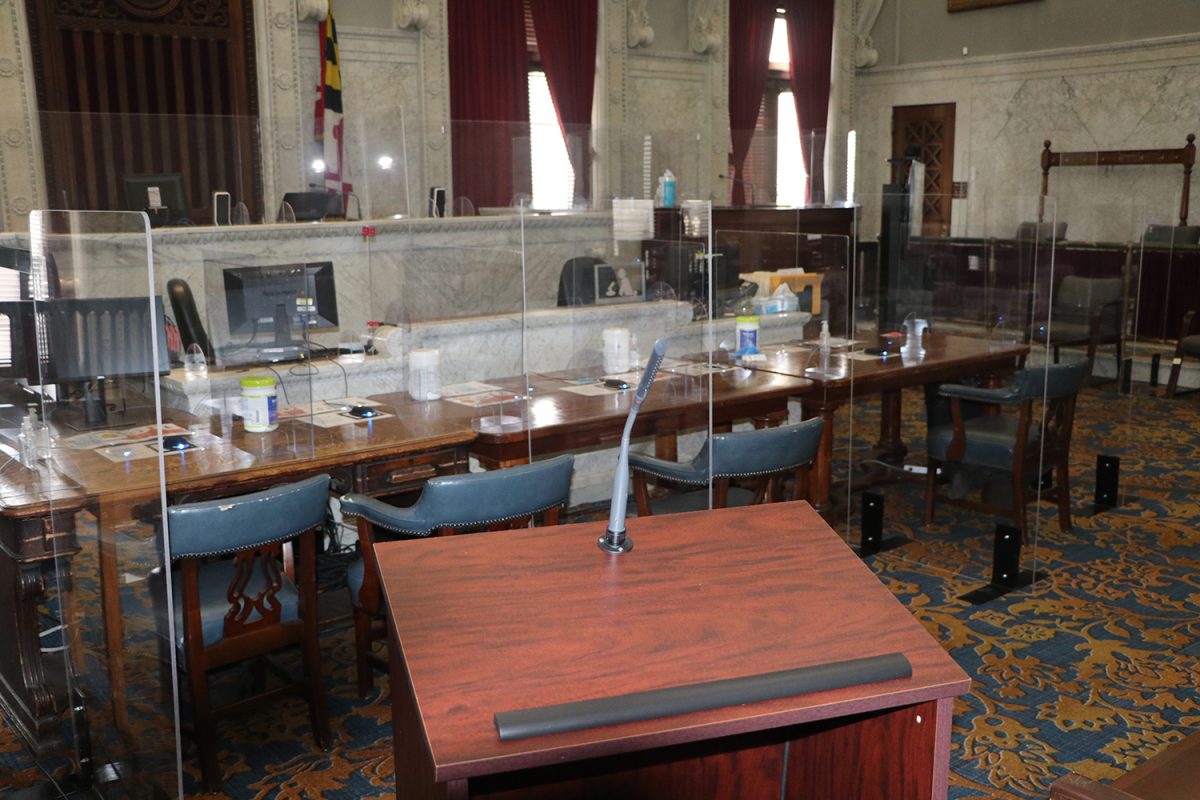
Thank you for reading Baltimore Witness.
Consider making a donation to help us continue our mission.
By
Hannah Rainer [former]
- September 29, 2023
Court
|
Daily Stories
|
Homicides
|
Shooting
|
Suspects
|
Victims
|
On Sept. 29, tensions were high during the reception court hearing for a defendant charged with first-degree murder in connection with the shootings of Baltimore Police Department Officer Keona Holley and Justin Johnson in December 2021.
Travon Shaw is charged with first-degree murder, conspiracy to commit first-degree murder, two counts of firearm use in a felony violent crime, carrying a handgun and having a handgun in his vehicle. Shaw was charged alongside 33-year-old Elliot Marcus Knox.
According to documents from the District Court of Maryland, Shaw and Knox were charged with the murders of 39-year-old Officer Holley on the 4400 block of Pennington Avenue and 38-year-old Johnson on the 600 block of Lucia Avenue. The two crimes were connected via cartridge casings found at both scenes. Both victims were shot in their respective vehicles.
After Knox was identified as a suspect, he identified Shaw as being involved in the crime during an interview with police.
The morning began with both parties in front of Baltimore City Circuit Court Judge Althea M. Handy. The prosecution declared that they wanted a postponement on the grounds that their most important witness was unavailable–namely, Shaw’s codefendant, Knox, whose trial was scheduled this week for February 2024.
The prosecution sought to have 34-year-old Shaw’s trial after Knox’s because, assuming Knox is convicted, he could be immunized in return for waiving his Fifth Amendment right against self-incrimination during testimony. Moreover, the prosecution impressed upon Judge Handy that Knox was a critical witness in building a case against Shaw.
“So you don’t have a case without his testimony?” Judge Handy asked.
The prosecution denied that, stating that if they needed to go to trial that day, they could. Then defense attorney Matthew Connell objected to the postponement, stating that his client’s right to a speedy trial should be prioritized.
Additionally, he said pending a conviction if the prosecution was planning to offer immunity to Knox, they could do that now. He also stated that the time Shaw has been sitting in prison was unreasonable, as he would be waiting nearly three years since the crime occurred if the trial were postponed into 2024.
When the parties were sent to Baltimore City Circuit Court Judge Melissa M. Phinn was most concerned with Knox’s waiving his Fifth Amendment right, since even if he is convicted, he would still be able to appeal. She also pointed out that a motion for a speedy trial was never filed, and agreed that if the prosecution wanted to offer Knox immunity, they could do so.
“They don’t just get to keep leap-frogging Mr. Shaw’s case,” said Connell when expressing his frustration for the delay.
Judge Phinn then asked if the parties were prepared to go to trial, with Connell stating that both he and Judge Handy were prepared. While the prosecution still wanted the postponement, they agreed that they could go to trial that same day. Judge Phinn denied the prosecution’s request for postponement and sent them back to Judge Handy to begin any pre-trial motions and jury selection.
